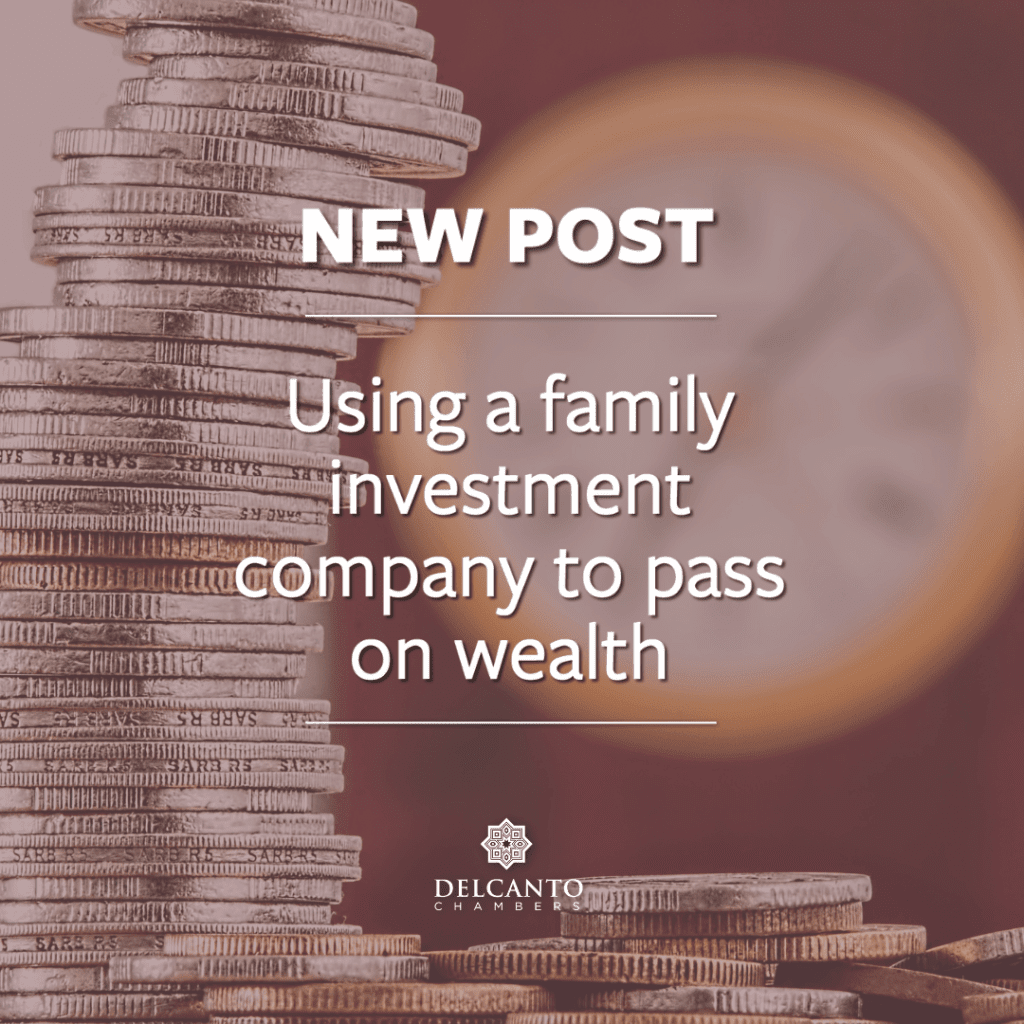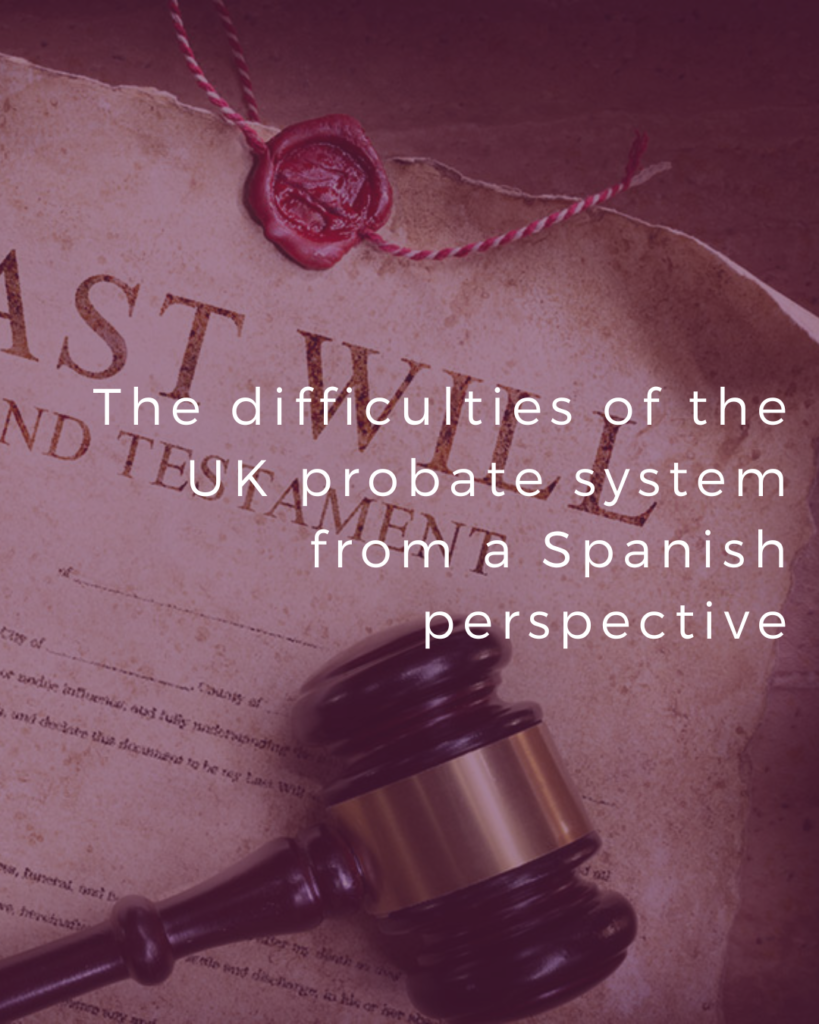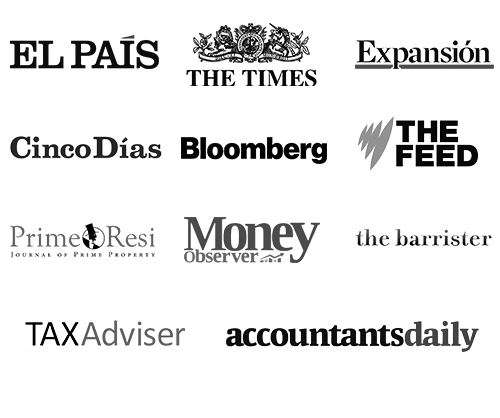Using a family investment company to pass on wealth. For families looking for a secure and tax-efficient way to manage and pass on wealth, a family investment company may offer some distinct advantages.
Traditionally in anglo saxon jurisdictions, trusts have often been used to protect wealth and shelter assets from Inheritance Tax liability. However, over recent years they have become less favourable. The amount placed in the trust in excess of the settlor’s nil rate band of Inheritance Tax allowance, currently £325,000 in the UK, will attract an Inheritance Tax entry charge of 20 per cent.
Further charges are made when capital is used and on every ten-year anniversary, at a rate of up to six per cent.
In addition, if the settlor retains any interest in the trust assets, then their value would be included as part of their estate for the purpose of calculating Inheritance Tax.
How does a family investment company work?
A family investment company allows parents to pass on money to their children, reducing their estates but with the option to retain control over the family wealth for as long as they feel necessary.
The use of a company means that the structure can be tailored to each unique situation, with different rights attributed to the shares issued to parents and children, as appropriate.
The parents would create the company, with themselves as directors and holders of shares with voting rights. They would transfer assets to the company for investment, with investment decisions being made by the directors.
Money is invested into the company by the parents, or directors, in return for shares with voting rights but no right to dividends, reducing tax liability.
The children would be given shares with no voting rights but with a right to dividends. Funds would then be passed to the children by way of a dividend.
The tax situation when setting up a family investment company
The tax status of a family investment company is generally more favourable than that of a trust.
Income tax
Where the investment into the company is made by way of a loan, repayment from the company profits may be free of tax.
Shareholders will pay income tax on money they receive, as follows:
Income band Tax rate
£0 – £2,000 (dividend income only) 0 per cent
£2,001 – £37,500 7.5 per cent
£37,501 – £150,000 32.5 per cent
£150,001+ 38.1 per cent
Corporation tax
Corporation tax is payable on profits, at the current rate of 19 per cent. This is set to increase to 25 per cent in April 2023 for companies with profits in excess of £250,000. A ‘small profits rate’ of 19 per cent will apply to annual profits of less than £50,000, with a tapered rate in between the two sums. If an equity portfolio is also put in place, then there is a chance that tax might not be payable as dividend payments made from one company to another may be free of tax.
Where residential property is held within the family investment company, rental profits will only be taxed at preferential corporate rates, with loan interest eligible for deduction from rental income.
Capital gains tax
The sale of assets will attract corporation tax at the above rates. Capital gains tax will be payable when the company is wound up, on the amount of any increase in value of the company shares.
Inheritance Tax
The Inheritance Tax position of a family investment company is generally favourable, with the value of any investments transferred to the shareholders immediately, subject to the person making the transfer surviving for seven years.
Benefits of using a family investment company
As well as creating a bespoke vehicle to control and manage wealth while taking advantage of favourable tax rules, using a family investment company means that family assets can be protected from issues such as divorce. By including relevant provisions in the company’s articles of association, share transfers to anyone outside of the company can be prohibited, meaning they will not form part of an individual’s assets in the event of a divorce.
The company can be structured to allow children to take on more responsibility in the future, for example, by becoming involved in the investments.
Potential disadvantages of a family investment company
HM Revenue and Customs are looking more closely at the tax situation in respect of interest-free loans and family investment companies as a whole. They set up a specialist unit in April 2019 to examine family offices and the management of wealth by high net worth individuals. There is a risk that taxation could change in the future.
It is important to take advice to ensure the company set-up will be the most tax-efficient method of investing for your specific family. While this is often the case, there is a possibility that tax would be paid twice if all of the company’s income is paid out.
Finally, a company may be more costly to end than other methods of investment, with capital gains tax payable on any increase in share value.
In summary
While the establishment of a family investment company is likely to be beneficial to families with considerable assets to manage, it is important to ensure that the structure is exactly right in each individual case and that the tax and company rules are adhered to throughout.
As a long-term solution to protecting family wealth from being lost to divorce or other difficulty, a family investment company works well. Combined with the tax advantages and the ability to pass on wealth to the next generation without relinquishing control, it makes the set-up ideal for many.
By Claudio Rodríguez, Tax Counsel, European Lawyer and Spanish Abogado at Del Canto Chambers
Contact Us
Del Canto Chambers is a leading London Chambers specialising in tax, international tax and legal affairs, property law, intellectual property and legal advocacy.
We can offer you extensive advice and guidance in respect of both family investment companies and family trusts and help you put the most tax-efficient vehicle in place for your assets.
To make a no obligation enquiry, please either call us now on:
+44 2070 430648 or Make An Online Enquiry.
We will come back to you within 24 hours and we will be delighted to help you.







